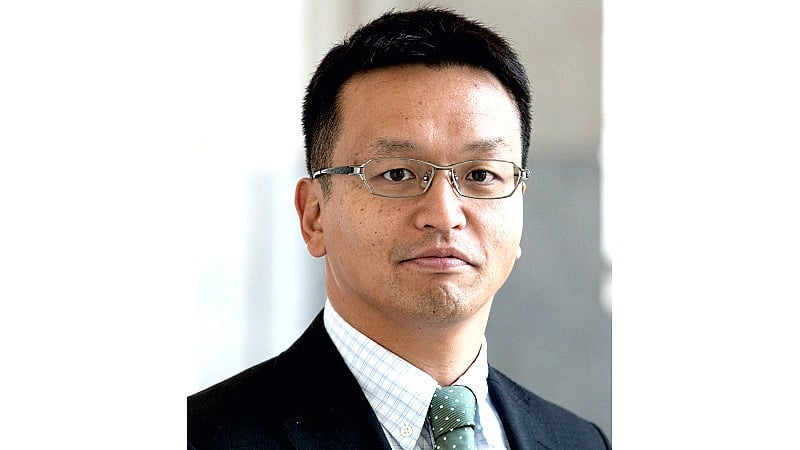
On May 25, North Korea fired off three ballistic missiles. The missile launch came immediately after President Biden’s visit to Japan and South Korea.
Some media saw this as an attempt by Pyongyang to get Washington’s attention. However, that is an error of judgement.
Given that North Korea’s missile development was originally intended as a deterrent to restrain Japan, the United States and South Korea, and that test launches have been carried out continuously, it is difficult to conclude that a particular political and diplomatic agenda was behind this action.
Rather, the timing of the launch was consistent with North Korea’s medium- to long-term weapons development program.
During the time that negotiations with former President Trump were taking place, the Kim Jong-un administration refrained from launching missiles.
However, Pyongyang currently has no connection to the Biden administration and therefore sees no reason to be concerned about the United States.
Washington is preoccupied with matters on the home front such as taking measures against COVID-19 and dealing with the crisis in Ukraine, so cannot afford to devote significant resources to the North Korean issue.
In the midst of all this, attention is focused on whether North Korea will carry through with its plan to conduct its seventh nuclear test in five years.
It is important to note, however, that a considerable amount of time has already passed since it was reported that preparations were complete and that the countdown to the test had begun.
The obstacles that Pyongyang must overcome to conduct a nuclear test are in fact vastly different from those that must be surmounted to conduct a missile test. This is because while the Xi Jinping administration has turned a blind eye to North Korea’s missile launches, it is distinctly opposed to its nuclear development and testing.
The last time North Korea carried out a nuclear test, on September 3, 2017, the United Nations Security Council unanimously adopted a resolution to impose sanctions on the country.
North Korea’s “ally” China, together with Russia, also aligned itself with the United States, the United Kingdom, and France.
Prior to this, the nuclear test conducted on September 9, 2016 had been met with an immediate response the same day from the Chinese foreign ministry which issued the following statement.
“Today the DPRK, in defiance to opposition from the international community, conducted another nuclear test, to which the Chinese government is firmly opposed.
“The achieving of denuclearization of the Korean Peninsula, prevention of nuclear proliferation and protection of peace and stability in Northeast Asia is a firm position of the Chinese side.”
Since the beginning of this year, similar assertions have been made consistently at Chinese foreign ministry press conferences, United Nations forums, and other meetings.
The concern is that if North Korea continues to advance its nuclear development program, it may create a “nuclear domino” effect in which Japan and South Korea also seek to acquire nuclear weapons.
A further issue of concern is that radiation leakage or other actual damage may result from such a test.
North Korea is the poorest nation in Asia and China harbors a profound distrust of Pyongyang’s ability to manage its nuclear technology, communicating its concerns to North Korea behind the scenes.
By 2017, the Kim Jong-un administration had carried out four nuclear tests and not a single summit between China and North Korea had been held.
Relations between the two countries had deteriorated to the point where Rodong Sinmun, the official newspaper of the Workers’ Party of Korea, denounced China by name.
The fact that Pyongyang did not need to be concerned about Xi Jinping was precisely what enabled it to carry out the nuclear tests.
In March 2018, however, Kim Jong-un and Xi Jinping held talks for the first time in the lead up to the North-South and U.S.-North Korea summits.
Further, Kim Jong-un borrowed an Air China plane to take him to Singapore in June of that year.
Since then, North Korea and China have maintained cordial relations and it is thought that the Kim Jong-un administration is deliberating whether to exercise restraint or proceed with a nuclear test, even if doing so would be detrimental to the relationship.
The existence of COVID-19 cases was revealed for the first time at the 8th Political Bureau Meeting of the 8th Central Committee of the Workers’ Party of Korea on May 12, 2021.
In that meeting, Kim Jong-un stated, “We should actively follow and learn from the advanced and abundant quarantine achievements and experiences of the Chinese party and people,” suggesting that North Korea would continue to place a high priority on maintaining cordial relations with China.
This is hardly surprising given that China is North Korea’s largest trading partner, accounting for over 90 percent of North Korean trade overall.
No matter how much Pyongyang tries to curry favor with Putin over the situation in Ukraine, Russia will never be a substitute for China.
Reports that Kim Jong-un is poised to conduct a nuclear test are understandable, given that preparations have been steadily advancing after the leader issued a decree for the development of nuclear missiles at the party congress in January 2021.
It should be noted, however, that Pyongyang continues to exercise caution about whether the military benefits to be gained by conducting such a test outweigh the political and diplomatic cost of doing so.
(Atsuhito Isozaki is Professor at Keio University, Japan.)
ADVERTISEMENT
ADVERTISEMENT








































